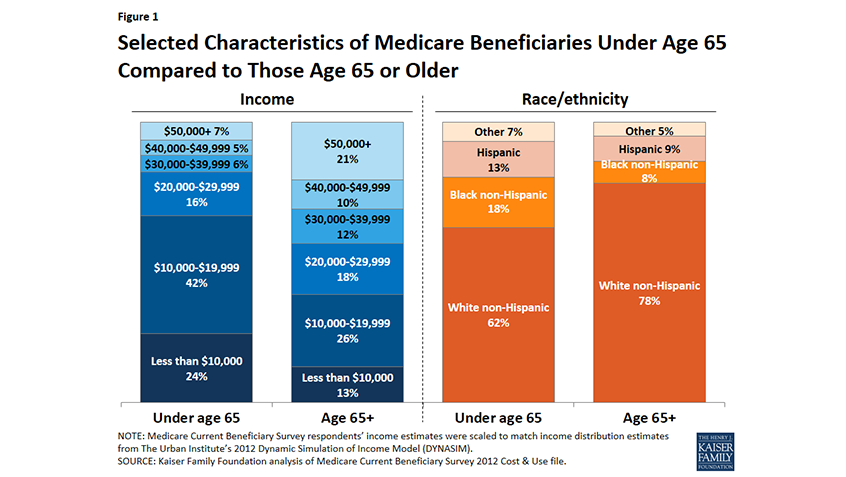
This week, the Kaiser Family Foundation (KFF) released a report comparing Medicare beneficiaries who are under age 65 and eligible for benefits as a result of receiving Social Security Disability Benefits to those beneficiaries who are eligible for Medicare due to age. The report finds that Medicare beneficiaries under age 65 differ from those ages 65 or older in several ways, including demographically, socioeconomically, and in health status. KFF also reports that those under age 65 have different types and rates of supplemental insurance than older beneficiaries.
Today, Medicare covers 9.1 million people under age 65. This group constitutes 16 percent of the Medicare population, an increase from the 1.7 million people (making up 7 percent of the Medicare population at the time) who were enrolled in Medicare as a result of Social Security Disability benefits in 1973. This growing segment of the Medicare population has unique needs and vulnerabilities.
For example, compared to older beneficiaries, KFF explains that a much larger share of people with Medicare under age 65 with disabilities had annual incomes below $20,000 in 2012. Additionally, a higher proportion of beneficiaries under age 65 were black or Hispanic. With respect to health status, KFF reports that nearly two-thirds of those with Medicare under age 65 beneficiaries had a cognitive or mental impairment, compared to 29 percent of older beneficiaries. In addition, three times as large a percentage of beneficiaries under age 65 reported their health status as fair or poor as did people with Medicare ages 65 and older.
The Latest
Most Read
Congress Moves to Cut Medicaid
Threats to the Social Security Administration and to Benefits Continue to Raise Alarm
House Adopts Senate Budget Plan, Laying the Groundwork for Significant Health Care Cuts
Trump Administration and DOGE Eliminate Staff Who Help Older Adults and People With Disabilities
Add Medicare to Your Inbox
Sign up to receive Medicare news, policy developments, and other useful updates from the Medicare Rights.
View this profile on InstagramMedicare Rights Center (@medicarerights) • Instagram photos and videos









